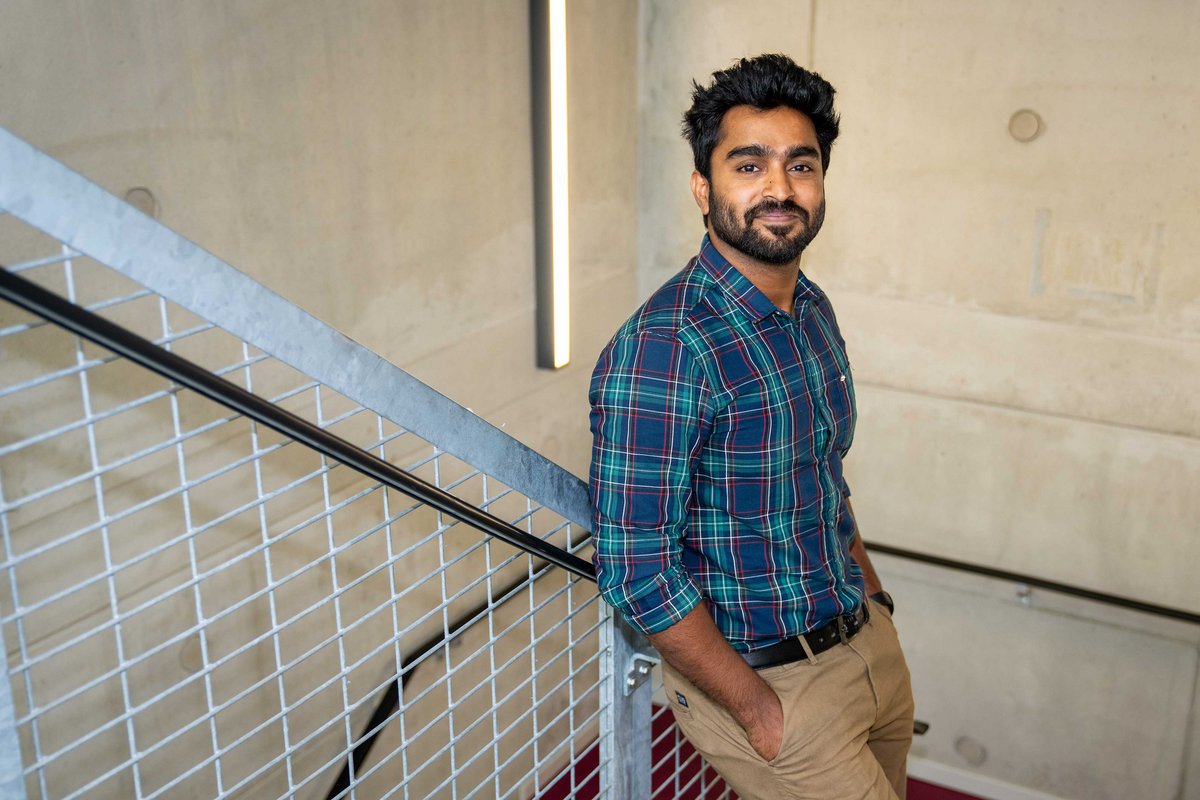Sustainable industry - BTU doctoral candidate looks at the challenges of decarbonisation
John Joe Padua, a doctoral candidate at the Chair of Energy Economics at the Brandenburg University of Technology Cottbus-Senftenberg (BTU), has a clear goal in mind: he wants to contribute to making industrial production low-carbon, resource-efficient and sustainable.^ His focus here is on the hydrogen infrastructure and the European electricity market. He is also working with other researchers to assess the import costs of hydrogen-based raw materials such as green ammonia, liquid and gaseous hydrogen and methanol.
The young scientist began his academic career in his native India, where he earned his bachelor's degree in mechatronics at the University of Calicut. For his Master's degree, he travelled to Germany, more specifically to the Fraunhofer Institute for Solar Energy Systems ISE in Freiburg. There, John Joe Padua analysed the potential of biomass for local energy planning for his thesis. After this chapter, his path led him to BTU - where he is doing his doctorate in Prof. Dr Felix Müsgens' chair - and he quickly learned to appreciate the university's close cooperation with industry and research institutions: "The practical application of our knowledge is crucial, and BTU delivers that really well."
He not only likes the university and its work, he also feels at home in Cottbus. He finds everything he needs here. He also sees an advantage in the fact that the city is compact and yet well connected to larger cities. "There's always something to do - whether it's swimming in the Spree or bouldering. The people are friendly and open. I really enjoy that," he says of his everyday life.
John Joe is currently taking part in the first Decarbonisation Summer School, which the Lausitz Science Network (LSN) is organising together with the Cluster Decarbonisation in Industries (CDI). From 9 to 11 September 2025, the event will bring together young talents from science, business and society to work on industrial decarbonisation under the motto "Shaping the Future of Industry". "I expect to gain many new insights and perspectives, especially from an industry perspective," explains John Joe Padua. Over the course of an intensive three-day programme, participants will work with industry experts and researchers in hands-on workshops, real-life case studies and site visits. During a design sprint, the participants will develop application-oriented solutions to decarbonise energy-intensive industries and promote the energy transition in Germany. "It's a great opportunity to network and hopefully find future co-authors for joint research projects," says John Joe Padua.
His long-term goals are clearly defined. After completing his doctoral studies, he would like to found a company specialising in sustainable energy solutions. "The energy transition is a huge challenge, but I'm looking forward to making my contribution and developing innovative solutions."

